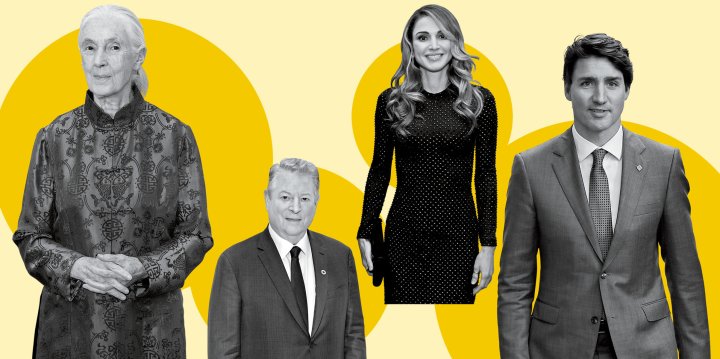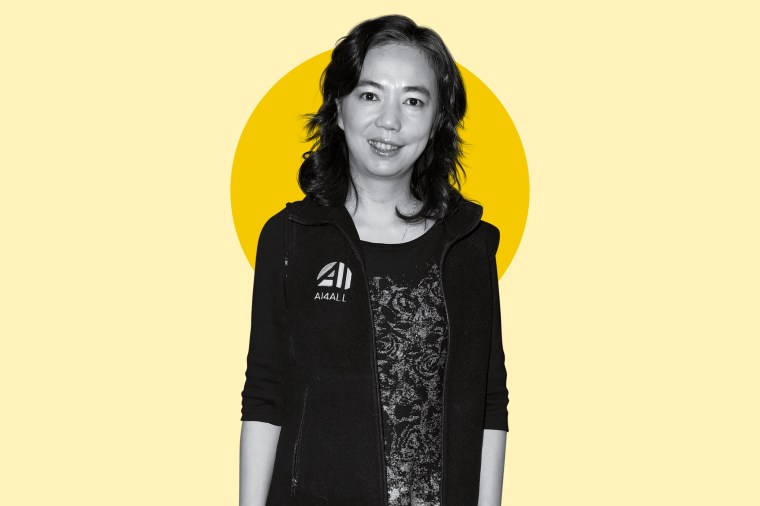 Getty Images
Getty Images Bring Diversity to Artificial Intelligence
By Fei-Fei Li
Artificial intelligence is the quest to build machines with human-like intellectual capabilities. But in an industry known for its struggles with representation, how can we ensure they’re inspired by the full range of human experience? Women make up only 12% of the AI research world and 26% of the tech workforce, while people of color fill less than 20% of leadership roles.
My nonprofit, AI4ALL, is working to reverse this trend by bringing firsthand experience in university AI labs to students of high school age who often feel left out of tech: girls, ethnic minorities and residents of underserved communities. AI is a vast frontier with far more to explore than any single person, group or even nation can manage alone. It will rank among our greatest technological achievements, and everyone deserves to play a role in shaping it. That, more than anything else, will ensure the world of 2030 is a future worth looking forward to.
Li is co-director of Stanford University’s Human-Centered AI Institute
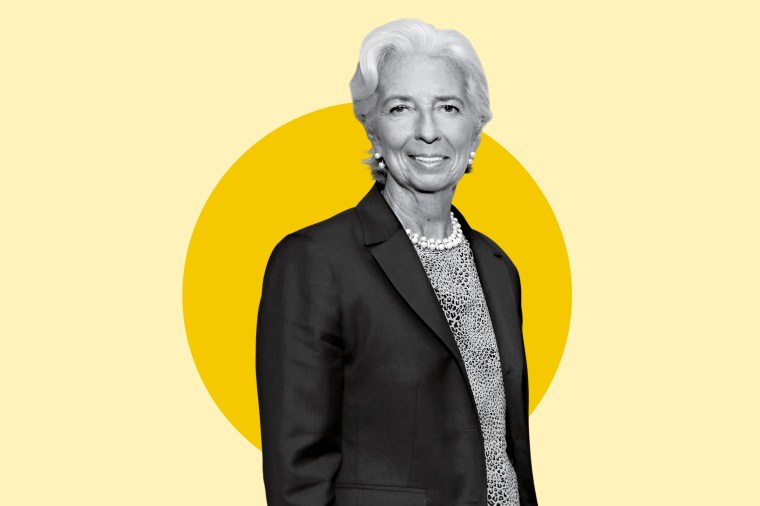 Getty Images
Getty Images Make Digital Cash Safer for All
By Christine Lagarde
We should consider the possibility for central banks to issue their own digital currencies. A state-backed token, or perhaps an account held directly at the central bank, could help ensure that remote and marginalized regions are included in the digital revolution, and could help protect consumers. Without cash, too much power could accrue to a small number of outsize private-payment providers.
This is not science fiction. Central banks around the world are already considering these ideas, including those in Canada, China, Sweden and Uruguay. Of course, challenges remain, like risks to financial stability. But as technology changes, so must we.
Lagarde is chair of the International Monetary Fund; the above is an extract from a speech she delivered for the IMF at Singapore Fintech Festival
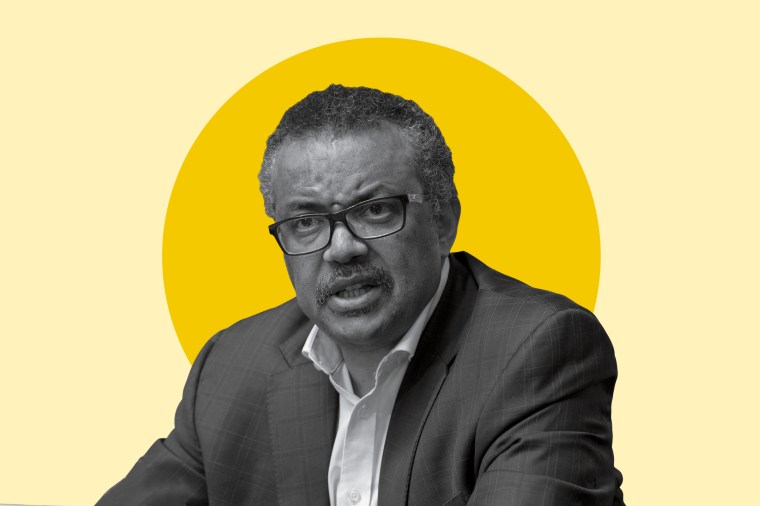 WHO
WHO Discover Badly Needed Antibiotics
By Tedros Adhanom Ghebreyesus
For almost a century, antibiotics have made once deadly infections treatable and curable. Now, we’re losing them. The rise of drug-resistant bacteria is jeopardizing decades of progress, threatening our ability to prevent and treat common conditions like pneumonia and urinary-tract infections. The causes are many, including overuse and misuse of antibiotics in humans and animals. But antibiotic resistance is also a market failure.
Compared with other types of drugs, antibiotics are not profitable for the pharmaceutical industry. As a result, there is a serious lack of promising new antibiotics in clinical development. One innovative model to address that is the Global Antibiotic Research & Development Partnership (GARDP). Set up by the World Health Organization (WHO) and the Drugs for Neglected Diseases initiative, the partnership is developing new treatments on a not-for-profit basis through public-private partnerships. One new antibiotic showing promise is for drug-resistant gonorrhea, an infection that has failed treatment with last-resort antibiotics in at least 10 countries. If it works, this partnership could be a model for how to increase access to and affordability of medicines, which is key to achieving universal health coverage.
Tedros is director-general of the World Health Organization
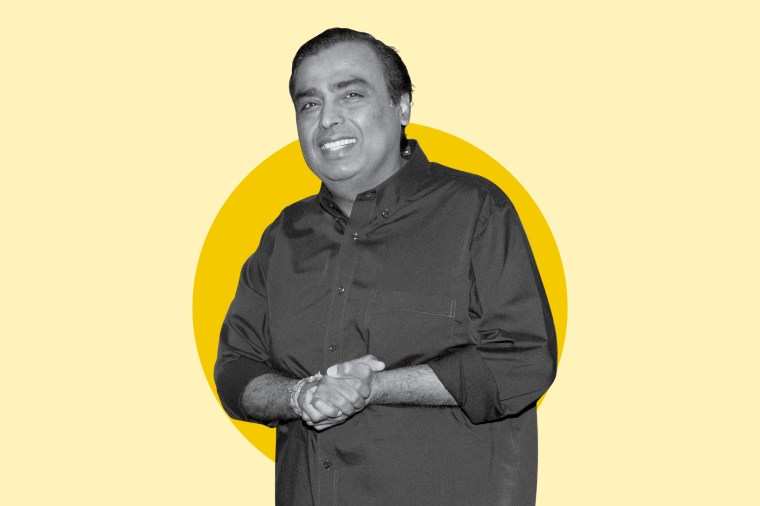 Getty Images
Getty Images Connect Everyone, Everywhere
By Mukesh Ambani
I believe no Indian should be excluded from the prosperity promised by the fourth industrial revolution. That’s why Jio, my company Reliance’s digital startup, has helped India’s mobile-data consumption to surge by over 1,400% since 2014. Within the space of a few years, we have gone from 2G and 3G to 4G and soon 5G speeds. By making voice calls and data affordable to almost everyone in India, Jio now offers a smartphone effectively for free. The U.N. has declared Internet access a human right, and India is where we have made the greatest disruptive contribution to fulfillment of this right.
Now we are determined to connect everyone and everything, everywhere. When data-driven intelligence is combined with society-wide empathy, we can transform the fourth industrial revolution into the first human-centered technological revolution, capable of solving complex problems. The developmental platform we have built in India can benefit the entire planet.
Ambani is chairman and managing director of Reliance Industries
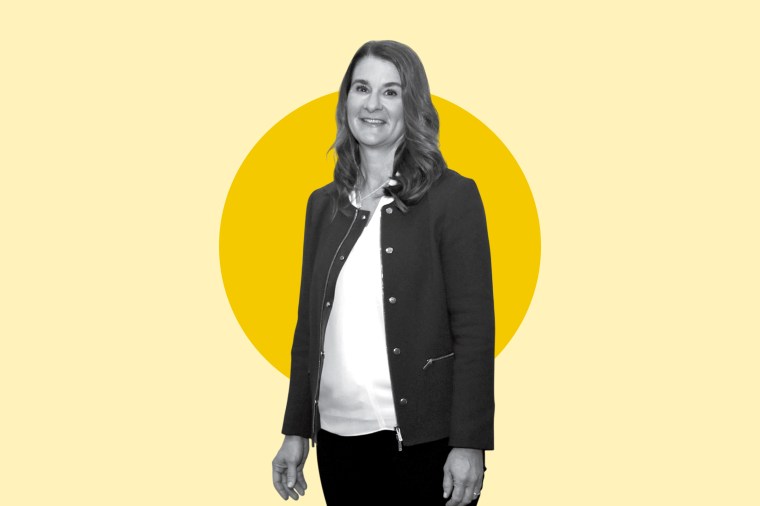 Getty Images
Getty Images Double Down on Saving Children’s Lives
By Melinda Gates
Perhaps the greatest achievement of the past generation is the fact that the number of children who die each year has been cut in half. On my horizon in 2019? To make it possible to cut child-mortality rates in half again. Over the past three decades, the world has established a group of four organizations that have saved millions of lives. You’ve likely never heard of them, but if you pay taxes, you’ve helped fund their success. Gavi has immunized more than 700 million children; the Global Fund pays for HIV treatment for half the people living with the virus; the Global Polio Eradication Initiative has pushed us to the brink of wiping out the disease. The newest, the Global Financing Facility, is focused on women’s and children’s health, including helping women plan their families—which means their children will be more likely to survive and prosper. All four need new funding this year. But some politicians in donor countries say they should invest less in the rest of the world. Will the world be able to cut child deaths in half again? It depends on what they decide.
Gates is co-founder of the Bill and Melinda Gates Foundation
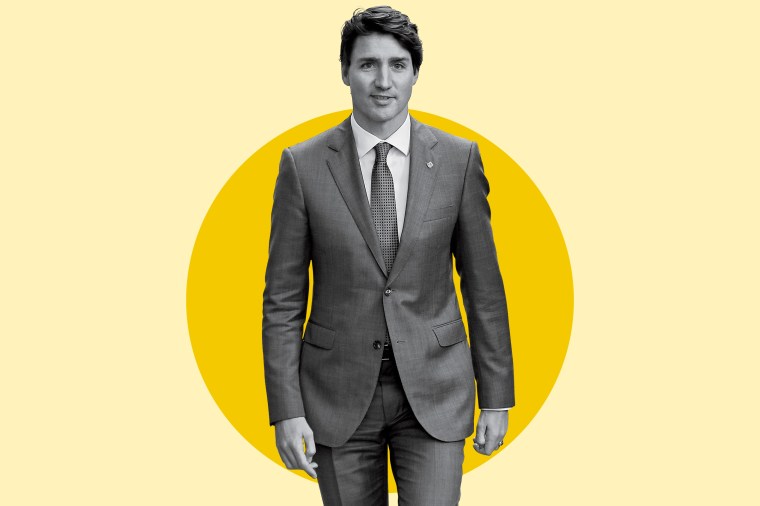 Getty Images
Getty Images Put a Price on Pollution for Cleaner Growth
By Justin Trudeau
Pollution isn’t free. Millions of people around the world are already paying its price in the form of catastrophic floods, uncontrollable wildfires, devastating droughts, spreading disease, and unprecedented forced migration.
We have to make a clean economy affordable for everyone—and we have a moral and economic imperative to act now. We are the last generation able to make sure future generations do not pay the full—and incalculable—cost of climate change. We’re also the first generation with the tools to do so.
Pricing pollution is the single most powerful way to cut emissions while driving economic growth. Since putting a price on pollution in 1991, Sweden has grown its economy and cut its emissions by 60 and 25 percent, respectively. Here, at home, the four provinces with a price on pollution in 2017 led the country in economic growth, while Canada led the G7 in economic growth. California hit its emissions reductions targets earlier and at a lower cost than anticipated after putting a price on pollution.
Lower emissions, cleaner air, a stronger economy. The science and economics behind pollution pricing are settled. As of 2019, it is no longer free to pollute anywhere in Canada. In the international fight against climate change, a national price on pollution should be the norm. Indeed, it is already a necessity.
Trudeau is Prime Minister of Canada
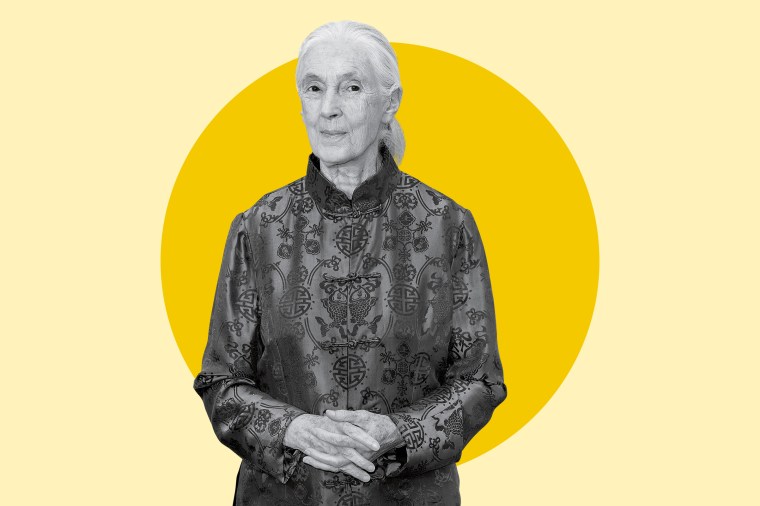 Getty Images
Getty Images Teach Children How to Nurture the Planet
By Jane Goodall
My greatest reason for hope for our future is the passion of young people. When we listen to them and empower them, the next generation is desperate to protect nature. Unfortunately so many children are unable to spend time in nature because of education systems rooted in technology and geared only to the demands of a materialistic world. I began Roots & Shoots in 1991 to provide young people of all ages with the opportunity to choose projects to benefit people, animals and the environment. Today in some 80 countries, groups are taking action to heal the harms we have inflicted. They are, for example, planting endemic species to encourage biodiversity, lobbying legislators about climate change, raising money for victims of natural disasters, volunteering in animal shelters. It is desperately important to encourage them as they work to heal the scars we have inflicted, and I urge philanthropists to invest in the education of young people to nurture the planet. The challenges we face are daunting, but nature is resilient, the human intellect incredible. So now, as our youth joins forces to tackle problems we have created, let us give them the support they need and help them in their fight to save the natural world—on which we ourselves depend.
Goodall is a primatologist and conservationist
 Courtesy Monsanto
Courtesy Monsanto Harness GMO Crops to Solve the Food Crisis
By Robert T. Fraley
As someone who helped pioneer genetically modified crops, I’m proud to see how much good they have accomplished. Despite consumer fears, the reality is GMO crops are safe—and can help solve both the sustainability and food-security issues our planet faces in the decades ahead. By combining biotechnology with gene editing, data science and digital tools, it will be possible to improve all the world’s crops. I believe it’s possible to not only double the food supply by 2050 but also to do it on less land than we farm today.
Fraley is former chief technology officer at Monsanto
 Getty Images
Getty Images Commit to a Clear Goal on Global Temperature rise
By Christiana Figueres
In October 2018 the U.N. Intergovernmental Panel on Climate Change issued a special report commissioned by the world’s governments to keep global temperature rise to “well below 2°C while striving for 1.5°.” The impacts of global temperature rise—caused by increasing CO2 emissions—have never been as clear, nor action so urgent, as we are quickly approaching tipping points of no return. The decisions we take over the next two to three years are crucial for the unprecedented structural changes we must embark upon to safeguard our climate and clean up our air. This is a make-it-or-break-it moment. To help guide this decisionmaking, here’s one idea for a simple but powerful strategy hack that can be implemented across the board. Now that we know the difference between 1.5°C and 2°C of warming—including twice as much physical damage, twice as many people subjected to life-threatening heat waves and fires—we have one clear path to follow. We must focus every effort on striving for 1.5°C. Let’s enact a “search and replace” across all strategic documents, including action plans, emission-reduction targets, risk and opportunity assessments: search for “well below 2” and replace it with “1.5.” Then act accordingly. It is not only the right thing to do, it is the only prudent and prosperous course of action.
Figueres is former executive secretary of the U.N. Framework Convention on Climate Change
 Getty Images
Getty Images Use Big Data to Help Stop Suicides and Self-Harm
By Bernard J. Tyson
The potential for data and analytics to be used in powerful new ways and improve the way health care is delivered is immense. Every year we learn more about how the digitization of health information can help people live healthier lives and make treatment more effective when they get sick. Already, we are using these tools in cancer care to help ensure people get effective treatment. We are using it to monitor and predict the developments of epidemics and disease outbreaks in real time. And now we have the potential to apply it to an area I am particularly passionate about: mental health and wellness. My company Kaiser Permanente recently looked at whether we could use Big Data and machine learning to better predict the risk of self-harm or suicide after mental-health visits. It turns out these risks are in fact more predictable than previously thought. This kind of “predictive analytics” holds the promise of moving care further upstream, with the potential to catch illness earlier and treat it more effectively. If we can effectively harness the data we already have access to and apply it to our greatest challenges, we will make incredible progress toward our ultimate goal of a healthier world.
Tyson is chairman and CEO of Kaiser Permanente
 Getty Images
Getty Images Empower Girls with Education
By Queen Rania
This year, the world will celebrate the 30th anniversary of the Convention on the Rights of the Child, at the heart of which is a promise that children’s rights are human rights.
Yet, as we take stock of that promise, we must acknowledge that we have failed too many children, especially the most vulnerable. This inequity is most stark in the classroom, where the right to education is still inexplicably and unjustly denied to millions of children who need it the most.
In my region, protracted conflicts have uprooted children and disrupted their schooling for far too long. As is often the case, it is girls who pay the highest toll – too many forced to swap homework for housework or, worse, school uniforms for bridal gowns.
The alchemic power of education is well-documented. When girls are educated, they are empowered to make decisions that improve their lives and those of their families. They become resilient and more likely to excel later in life. We all have a role to play in realizing the promise we made to the world’s children 30 years ago. So my challenge to each of you is: what will you do?
Rania Al Abdullah is the Queen of the Hashemite Kingdom of Jordan
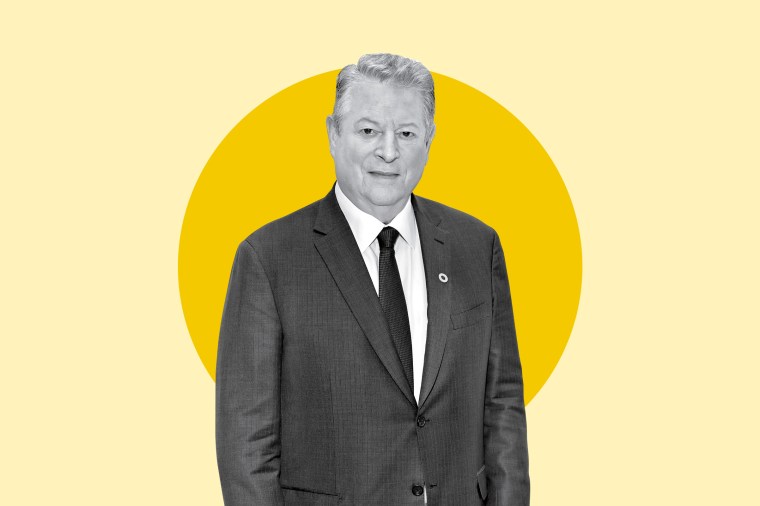 Getty Images
Getty Images Fight for Sustainability Now—Before it’s Too Late
By Al Gore
The climate crisis is now a full-blown global emergency. The severity and frequency of climate-related disasters are accelerating—as is the risk of catastrophic disruptions to essential components of the earth’s ecological balance that have enabled the flourishing of human civilization for the last 10 millennia: the water cycle, the pattern of wind and ocean currents, sea levels, the web of biodiversity, the habitability of significant populated areas and much more. Fortunately, we have the tools and technologies to solve the crisis. The world is in the early stages of a global “sustainability revolution”—based in part on our new-found ability to achieve hyperefficiency in the use of energy and materials, the emergence of abundant and cost-effective renewable energy generation and storage, electric vehicles, sustainable agriculture and forestry techniques, a circular economy that reuses waste streams as raw materials, and other exciting advances. New policies are needed to quickly manage a transition from the destructive approaches of the past to the sustainable approaches that are now available. There’s hope: visionary nations, businesses and investors—and even more regional and local governments—are pioneering new and promising policies. Time is running out. A rising generation around the world is demanding change and leading the sustainability revolution. We must respond to this calling and act like our world depends on it, because it does.
Gore, the 45th Vice President of the United States, is founder and chairman of the Climate Reality Project
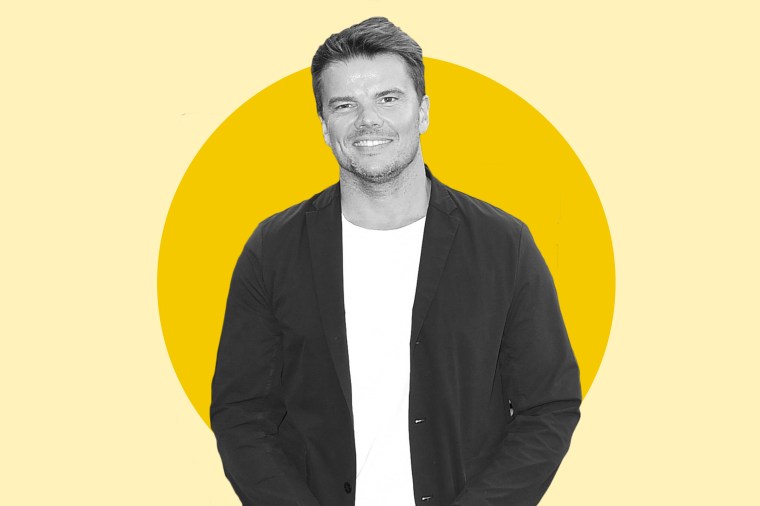 Getty Images
Getty Images Transform How We Create Buildings
By Bjarke Ingels
For the last thirty years, while productivity in manufacturing has increased, productivity in the construction industry has flatlined. The way we plan and design buildings has become more accurate. But the way we build, the way we translate our data into matter, has remained the same: it’s still done with a hand and a hammer. Now we’re at a moment where the computer-aided construction tools that we know from the manufacturing industry—3D printing tools and the deployment of robots, for example—are about to transform the built environment.
When you are building a normal building with normal materials, a rounded corner is an added expense. It requires more effort, more time, more smoothing. It’s more difficult to make. But when you are 3D printing, making a rounded corner is actually cheaper, because it uses less material. And it’s sturdier, because it doesn’t have any hard edges that may chip. When 3D printing is widespread, a straight wall will take the same amount of time as a curvy wall. It sounds simple, but it will unleash an explosion in quality and productivity. You can make an almost infinite variety and amount of ornamentation.
Aside from the creative opportunities, there are enormous environmental implications. If you’ve ever been to a construction site, you will see a tremendous amount of waste, because of the inaccuracies of human craftsmanship and the lack of precision in the translation from data to matter. When that translation happens from a computer-aided design file to automated construction, you will have much, much, much less waste in the construction process.
Ingels is a Danish architect and founder of Bjarke Ingels Group (BIG)
 Getty Images
Getty Images Be Bolder in How We Invest in the Future
By Mariana Mazzucato
Economic growth has not only a rate but also a direction. While some countries are still craving pre-crisis growth rates, we should be aiming for growth that is more inclusive, sustainable and driven by innovation. Yet rather than providing long-term finance to stimulate creativity and investment in industry, finance has become more short-termist and speculative, focused only on financing other parts of the financial sector, like insurance and real estate. Meanwhile, the industry itself has become overly financialised. The Fortune 500 companies have spent nearly $3 trillion in share buybacks in the last decade, intended to boost share prices, stock options and executive pay.
Imagine the opportunities if the danger of climate change were turned into a positive roadmap for investment and innovation across the entire economy. But the pressure should not only be on business: the public sector must renew its courage to act in mission-oriented ways—setting the direction for change through bold investments in areas that increase business expectations. A moon-shot approach—whichI have been advocating in the European Union— to key problems around energy, health and the future of mobility could help make this happen. As in the case of the IT revolution, governments need to provide the lead, setting clear goals and using government instruments, from prizes to procurement, to crowd in investment from public, private and third sector actors.
Fundamentally this will also require a new confidence within public institutions to see themselves not just as market fixers, and redistributors of value created in business, but as active co-shapers of markets, and co-creators of value.
Professor Mariana Mazzucato is the Director of UCL's Institute for Innovation and Public Purpose (IIPP) and the author of The Value of Everything: making and taking in the global economy
 Courtesy IKEA (2)
Courtesy IKEA (2) Tackle Pollution with Innovative Ideas to Clean Air
By Lena Pripp-Kovac and Torbjörn Lööf
Around the world, nine in ten people live in places where air pollution exceeds safe limits. We know that IKEA operations can sometimes impact air quality, and as part of our efforts to become climate positive across our value chain, we are focusing on clean air.As well as developing solutions to help clean the air in people’s homes —from curtains made of an innovative air-purifying textile, to affordable filtration devices — we are exploring initiatives that can make an even bigger impact.
In New Delhi, India, for example, we are pioneering a way to use waste as a resource. After the harvest each year, rice straw – a by-product usually considered waste – is burnt, contributing to the city’s historically poor air quality. Under our “Better Air Now” initiative, we are turning New Delhi’s rice straw into a renewable material for IKEA products. That means improved air quality and a new source of income for smallholder farmers.
We’ve already created the first prototypes from the new materials – decorations and paper boxes – which will be on sale in IKEA stores in India by 2020. And we aim to roll out the initiative to other megacities around the world.To create a true impact on air pollution, we need commitment from every group in society, including businesses, individuals, NGOs and policymakers – working together to make lasting change.
Pripp-Kovac is IKEA’s Head of Sustainability and Lööf, is chief executive of Inter IKEA Group
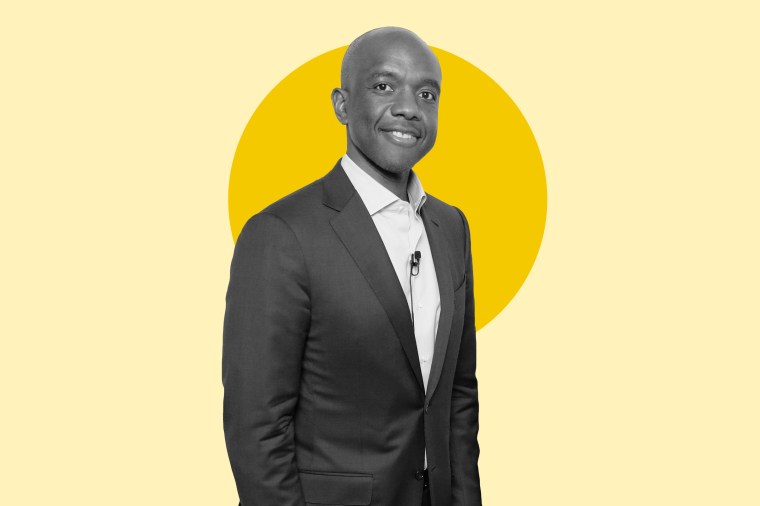 Getty Images
Getty Images Reskill the Workforce for the Age of AI
By James Manyika
Artificial intelligence and automation technologies have made huge advances over the past few years, to the point where machines can now exceed human capabilities in certain areas. This will have dramatic implications for the world of work. The big question is whether workers will be able to acquire the skills needed to adapt and meet the demand for skills, many of which will involve working alongside machines.
Education and worker training and retraining are thus emerging as the key challenge of our era. Our education systems will need to be rethought to emphasize not just technological skills, but also to hone social and emotional and higher cognitive skills that are intrinsically human—skills such as initiative taking, empathy, creativity, and critical thinking. For midcareer workers, and for the companies where they work, adaptability will be the new watchword. For now, large-scale “reskilling” initiatives are the exception. If we are to thrive in a more automated future, we need not only to talk about lifelong learning, but to put it into practice at scale—and quickly.
James Manyika is a senior partner at McKinsey & Company and chairman of the McKinsey Global Institute, McKinsey’s business and economics research arm
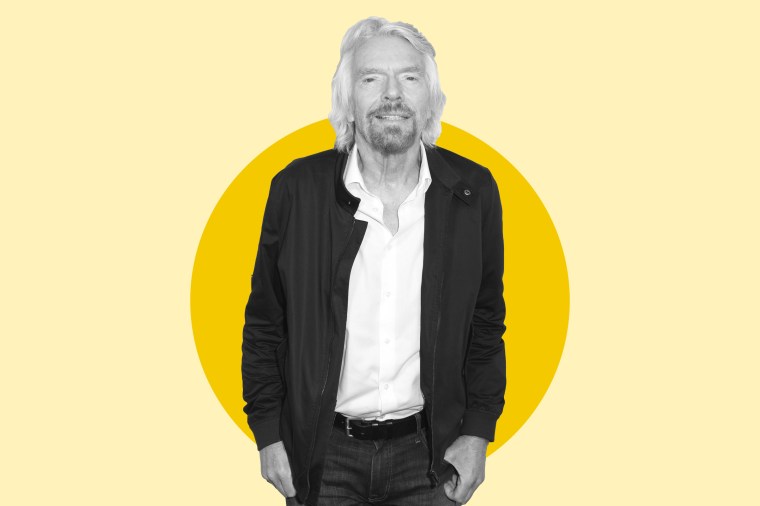 Getty Images
Getty Images Eat Less Meat
By Richard Branson
Eating meat the way we do has serious consequences. The global supply chain for conventional meat is a major greenhouse gas emitter. It also requires immense amounts of fresh water and wreaks havoc on the world’s ecosystems. At the same time, daily meat consumption is also a key factor in cardiovascular disease and obesity.
It’s clear consumer behaviour has to change. That will be difficult, but a mix of (organic) carrots and (recycled) sticks ought to do the trick. For starters, industrial-scale meat production is increasingly being exposed for the damage it does. As a result, many who can afford it have started looking for organic, local sources of meat. But change on a global scale will take time. Eliminating harmful subsidies and putting a price on externalities will have to be part of the solution.
The other part is innovation. Alternatives to meat are abundant and – dare I say it – quite tasty. By the 2020s, production of so-called clean meat will reach increasing scale (full disclosure: I’m an investor), while the market for meat-free substitutes is already growing rapidly. This will keep prices down and allow everyone to make better, healthier choices that are good for the planet, too.
Branson is the founder of the Virgin Group
 Getty Images
Getty Images Take Gender Equality in the Workplace Seriously
By Saadia Zahidi
Let’s use this moment of flux in labour markets to hardwire gender equality into the future of work. I’d like to see all companies commit to recruiting equal numbers of men and women for their five highest growing occupations, within 3 years. We must continue current efforts to retroactively fix problems that have been decades in the making but we also need such measures to prevent future problems. Especially when it comes to STEM skills-based roles we need a proactive measure like this. For example currently only 23 percent of global AI talent is composed of women. Not only can we change this but we can change it fast with upskilling and reskilling combined with the new demand from companies created through such an approach.
Zahidi is Head of Education, Gender and Work at the World Economic Forum
Correction: Jan. 19
The original version of this post misstated Saadia Zahidi's title. She is the Head of Education, Gender and Work at the World Economic Forum, not the World Economic Foundation.
 Getty Images
Getty Images Cut the Crippling Cost of Higher Education
By Jared Polis
At $1.4 trillion, student loan debt weighs down nearly 43 million student loan borrowers nationwide. Never before have so many, who are so young, owed so much.
With the amount of money given away to international corporations through tax reform, we could have wiped out all student debt from the books and freed millions of Americans to pursue their dreams.
Getting an education should help students achieve their goals. It shouldn’t be a barrier to goals like getting a home, starting a family, or saving for an emergency. To reduce the skyrocketing cost of college and subsequent debt, we have to think about everything from tuition to textbooks.
We were able to chip away at costs earlier this year when the U.S. Congress finally approved a $5 million allocation to expand access to free, open-source textbooks, many of which are online. The move was modeled after the bipartisan Affordable College Textbook Act, which I drafted after getting feedback from local colleges and universities. It’ll go a long way, but there is still more left to do.
Congress will this year consider passing legislation to educate students on loans. The Know Before You Owe Act I introduced before leaving the House of Representatives would help protect students from predatory private student loan lenders. It would require schools to counsel students before they sign on to expensive, private education loan debt and inform them of any unused federal student aid eligibility.
Education truly is the single most important investment we could make in our collective future, and there is bipartisan agreement. We all benefit when it is accessible and affordable for everyone.
Polis is the governor of Colorado
 Getty Images
Getty Images Begin the Process of Ending Private Car Ownership
By Dara Khosrowshahi
As more people have come to rely on Uber, our technology has become an important part of the transportation fabric of cities. What started as a more reliable way to get a ride has evolved into a global marketplace powering 15 million trips a day.
With that comes a responsibility: we are in a unique position to have a meaningful and positive impact on the cities we serve. Our ultimate goal is one we share with cities: making it easier to live without owning a personal car. Achieving that goal stands to improve urban life by reducing congestion, pollution and the need for parking spaces.
To get there, we’ve begun to bring multiple modes of transportation together within the Uber app—so that our customers can choose the fastest or most affordable way to get where they’re going, whether that’s in a car, on a bike, on the subway, or more. We believe that by offering many reliable ways to get from point A to point B, personal cars can ultimately be replaced by apps like Uber.
Technology on its own is not a solution for urban problems —but done right, and in partnership with others, we believe technology has the potential to contribute to a better world for all.
Khosrowshahi is Chief Executive Officer of Uber
Correction, Jan. 22
The original version of this story misstated Christiana Figueres' first name. It is Christiana, not Christina.
